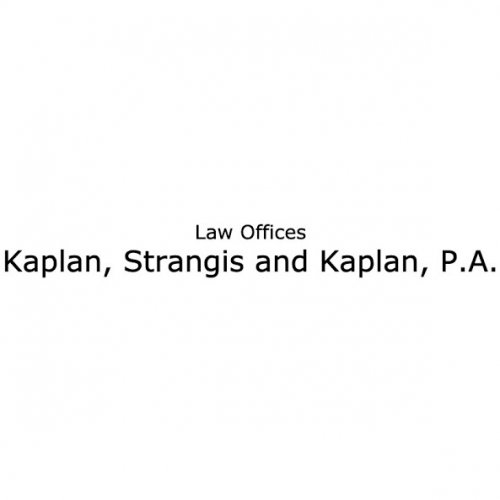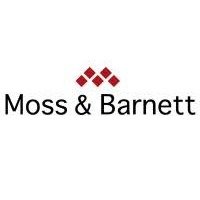Best Antitrust Litigation Lawyers in Minneapolis
Share your needs with us, get contacted by law firms.
Free. Takes 2 min.
List of the best lawyers in Minneapolis, United States
About Antitrust Litigation Law in Minneapolis, United States
Antitrust litigation is a legal area focused on ensuring fair competition and regulating the conduct of businesses to prevent monopolistic practices, price-fixing, and other unfair trade restrictions. In Minneapolis, as in the rest of the United States, antitrust litigation is governed by federal laws such as the Sherman Act, Clayton Act, and the Federal Trade Commission Act. However, Minnesota also has its own state-level antitrust laws that provide additional protections for businesses and consumers. Cases may involve investigations, lawsuits, and settlements relating to market manipulation, mergers that may restrict competition, or unfair trade practices impacting consumers or competitors.
Why You May Need a Lawyer
Antitrust litigation can be extremely complex, involving detailed economic analysis, substantial evidence, and high stakes for businesses large and small. You may need a lawyer if you:
- Believe your business is a victim of anti-competitive behavior, such as price-fixing or market allocation by competitors.
- Are being investigated or sued for allegedly violating antitrust laws.
- Are involved in a merger or acquisition that may require regulatory review for its impact on competition.
- Suspect exclusive dealing, tying arrangements, or group boycotts are adversely affecting your business.
- Are a consumer harmed by restricted choice, artificially high prices, or other anti-competitive conduct.
- Need to navigate federal and Minnesota state regulations regarding fair competition.
Having experienced legal representation is crucial, as antitrust cases can lead to significant financial penalties, business restrictions, or even criminal sanctions.
Local Laws Overview
Antitrust litigation in Minneapolis is primarily influenced by both federal and state laws. The key federal statutes include:
- Sherman Act: Prohibits contracts, combinations, or conspiracies in restraint of trade, and bans monopolization.
- Clayton Act: Addresses specific practices like price discrimination, exclusive dealings, and certain mergers or acquisitions that may harm competition.
- Federal Trade Commission (FTC) Act: Prohibits unfair or deceptive business practices.
Minnesota’s own antitrust statute, the Minnesota Antitrust Law of 1971, closely mirrors federal laws but sometimes offers broader protections. The Minnesota Attorney General’s Office has authority to investigate and bring civil actions against businesses suspected of violating these laws. Local Minneapolis courts have experience adjudicating complex antitrust matters, and court decisions may reference both federal and state statutes.
Individuals or businesses based in Minneapolis should be particularly aware that state law may offer additional avenues for pursuing damages or stopping anti-competitive conduct. Consulting with a local attorney helps ensure any local legal intricacies are considered.
Frequently Asked Questions
What is antitrust litigation?
Antitrust litigation involves lawsuits or legal action regarding anti-competitive business practices, like monopolization, price-fixing, bid-rigging, or efforts to unfairly restrict market competition.
Who enforces antitrust laws in Minneapolis?
Several entities enforce antitrust laws in Minneapolis, including the U.S. Department of Justice Antitrust Division, the Federal Trade Commission, and the Minnesota Attorney General’s Office.
What are some signs that my business could be affected by antitrust violations?
Common signs include sudden and unexplainable price increases, difficulty entering a market, exclusive supply agreements, reduced supplier options, or evidence of competitors coordinating prices or markets.
Can individuals bring antitrust claims, or only businesses?
Both individuals and businesses can bring antitrust claims if they are harmed by anti-competitive practices.
Is antitrust litigation only for large corporations?
No, antitrust litigation can involve companies or organizations of any size, as well as consumers who suffer damages due to restricted competition or unfair business practices.
What are the penalties for violating antitrust laws?
Penalties can include substantial fines, damages that may be tripled (treble damages), injunctions orders to cease illegal practices, required divestitures, or even imprisonment in criminal cases.
How are antitrust cases proven in court?
Proving an antitrust case typically requires evidence of agreements among competitors, analysis of market power, economic data, and documentation showing that competition or consumers have been harmed.
What should I do if I receive an antitrust investigation notice?
Immediately seek legal counsel with experience in antitrust litigation. Do not destroy any documents or communications, and follow legal advice regarding your response and communication with investigators.
Are there deadlines for filing antitrust lawsuits in Minneapolis?
Yes, there are statutes of limitations for antitrust claims, which vary depending on whether the claim falls under federal or state law. Consult an attorney promptly to avoid missing filing deadlines.
What is the role of the Minnesota Attorney General in antitrust matters?
The Minnesota Attorney General’s Office investigates suspected violations, files lawsuits on behalf of the state or affected consumers, and enforces both state and federal antitrust laws across Minnesota, including Minneapolis.
Additional Resources
If you need more information or assistance, consider these resources:
- Minnesota Attorney General’s Office - Provides guidance, accepts complaints, and enforces state antitrust laws.
- United States Department of Justice Antitrust Division - Investigates and prosecutes violations of federal antitrust laws.
- Federal Trade Commission (FTC) - Offers consumer guidance, enforces antitrust laws, and investigates unfair business practices.
- Hennepin County Bar Association - Connects individuals with qualified local attorneys experienced in antitrust matters.
- Legal Aid Societies - May offer support or referrals for lower-income individuals affected by anti-competitive conduct.
Next Steps
If you, your business, or your organization believes you are impacted by anti-competitive practices or have been notified of an antitrust investigation, your next steps include:
- Preserve all documents, emails, contracts, and communications related to the issue.
- Seek a consultation with a Minneapolis-based attorney specializing in antitrust litigation to review your situation.
- Gather detailed notes on the suspected conduct, including dates, names, and evidence.
- If warranted, consider filing a complaint with the Minnesota Attorney General’s Office or the FTC as advised by your attorney.
- Ensure you comply with all legal obligations during any investigation and follow your lawyer’s guidance on how to proceed.
Antitrust law is complex, and the stakes for affected parties can be very high. Taking timely, informed action with support from qualified legal professionals is the best way to protect your rights and interests in Minneapolis.
Lawzana helps you find the best lawyers and law firms in Minneapolis through a curated and pre-screened list of qualified legal professionals. Our platform offers rankings and detailed profiles of attorneys and law firms, allowing you to compare based on practice areas, including Antitrust Litigation, experience, and client feedback.
Each profile includes a description of the firm's areas of practice, client reviews, team members and partners, year of establishment, spoken languages, office locations, contact information, social media presence, and any published articles or resources. Most firms on our platform speak English and are experienced in both local and international legal matters.
Get a quote from top-rated law firms in Minneapolis, United States — quickly, securely, and without unnecessary hassle.
Disclaimer:
The information provided on this page is for general informational purposes only and does not constitute legal advice. While we strive to ensure the accuracy and relevance of the content, legal information may change over time, and interpretations of the law can vary. You should always consult with a qualified legal professional for advice specific to your situation.
We disclaim all liability for actions taken or not taken based on the content of this page. If you believe any information is incorrect or outdated, please contact us, and we will review and update it where appropriate.














